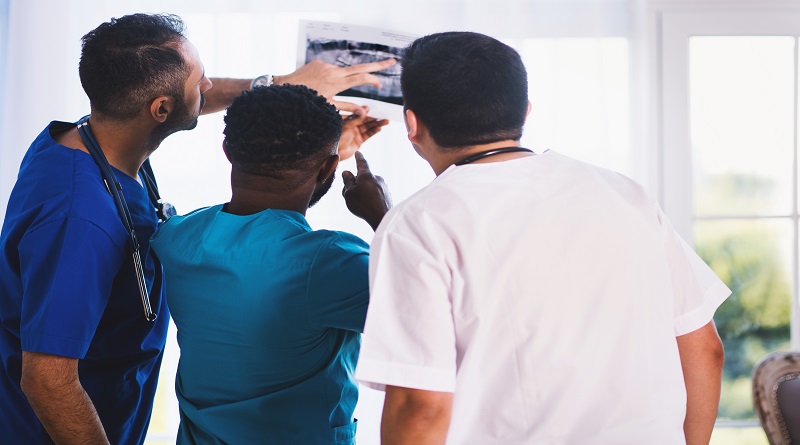Are you detail oriented? Do you have a critical mind and strong observation skills? These are just some of the important qualities of a radiographer in their role to assist and help the diagnosis and treatment of different issues. If you’re self motivated and have strong research skills, this could be a good area for you to consider.
What is radiography?
Radiography is an imaging technique that uses radiation to provide images of bones, tissues, organs and vessels that make up the human body.
What third level courses are available?
Universities and colleges in Ireland are offering courses in the following subject areas:
- Radiography – UCD
Studying radiography in college
The choice of where to study radiography is limited in Ireland. UCD offers a four year undergraduate course in radiography. The information below is based on that course for reference. You will gain all the necessary skills and knowledge to work successfully as a radiographer.
In your first year of an undergraduate degree, you will look at the basics of radiography and gain an insight into what is to come in the coming years of your course. First year acts as a foundation year. Examples of modules you will take include Anatomy, Practice of Radiography and Technology of Radiography as well as your own electives. You will also take your first practical placement in your first year.
Second year will introduce you to more in depth content in the area and explore a wider variety of subject areas. These include Physiology, Technology (RIS/PACS), Image Interpretation, Radiation Protection and Advanced Practice in Radiography. You will also do clinical placement this year to become familiar with working in the area and applying your skills practically.m
Your third year of Radiography will explore areas from Ultrasound and Computed Tomography to Mechanisms of Disease, Paediatrics, Cross Sectional Anatomy and Interventional Radiography as well as continuing in your clinical placement.
Your final year is quite a busy year. You will study Professional Completion, Legal Medicine, Magnetic Resonance Imaging, Nuclear Medicine and more. You will also finish your final clinical placement as well as carrying out research on current issues in Healthcare such as breast imaging. In this course, there is also an opportunity to go on Erasmus for a three month period in one of UCD’s current partner institutions in countries including Belgium, Austria, FInland, Greece, Malta, Netherlands and more.
Career Options
As a radiographer your main responsibility is to produce high-quality images in order to assist and help diagnose and treat different issues. In this area you can go on to become a diagnostic radiographer and be employed in hospitals or employed as applications or sales specialists
Many continue their studies at postgraduate level while PhDs in the area are becoming increasingly popular.
Skills and qualities important in this area include excellent communication skills, attention to detail, observation skills, a critical mind, time management skills, organisation skills, analytical and research skills, interpersonal skills, observation skills, decision making skills and self motivation.
Another option is to study Radiographyin the UK, therefore you will apply through the English version of the CAO known as UCAS. More information about UCAS can be found in the ‘Resources’ section below.
Related Jobs
- Radiography
- Therapeutic Radiographer
- MRI Radiographer
- Diagnostic Radiographer
- Biomedical Scientist
- Neuroscientist
- Oncology
- Surgeon
Further Study
Visit postgrad.ie for more information.
FAQ
Different courses and different colleges will have different entry requirements. It’s always safest to check with the individual higher education institution which is available on their websites. As a general rule Leaving Cert students should have a minimum of six subjects which should
include: Two H5 (Higher Level) grades and Four O6 (Ordinary Level) grades or four H7 (Higher Level) grades. Subjects must include Mathematics, Irish or another language, and English.
Certain QQI Awards in a relevant area may also be accepted. These change from course to course so be sure to research further.
The points required to study Radiography in UCD were 532 points in 2020. Other options include Radiography courses abroad which have specific UCAS requirements.
Where can I study?
You can explore your options here.
Did you know?
- Radiography uses x-rays, gamma rays and similar forms of radiation
- X-rays revolutionized tuberculosis treatments
- X-rays were discovered by accident in 1895 by Wilhelm Conrad Röentgen, a German professor.
Resources












Comments